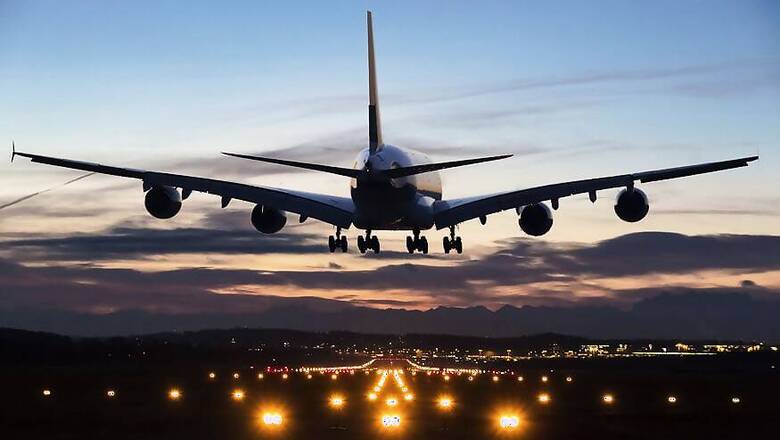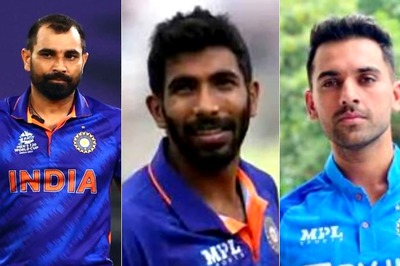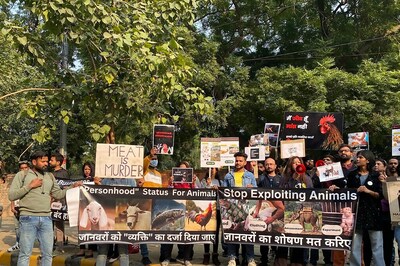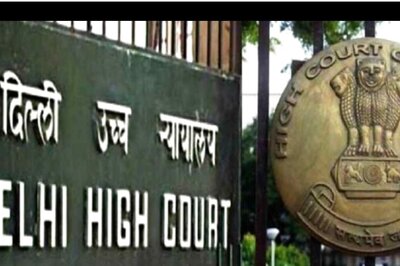
views
Mumbai: The domestic pilot bodies of Air India and Jet Airways have opposed the aviation regulator's draft duty and rest hours norms for the flight crew, terming them as "downright dangerous" and "regressive".
While national carrier Air India has two pilots unions-- the India Commercial Pilots Association (ICPA) and Indian Pilots Guild (IPG) -- Jet Airways domestic pilots are represented through the National Aviator's Guild (NAG).
Earlier this month, aviation regulator Directorate General of Civil Aviation (DGCA) proposed a new set of flight and duty time limitation (FDTL) rules.
The FDTL rules for pilots were framed in 2011 and some clarifications sought by the operators at that time were attached to the Civil Aviation Requirement (CAR) in 2012.
"In the interest of flight safety and most importantly public safety, most of the changes that are being proposed in this draft are not only unacceptable but downright dangerous and appear to reflect a dubious commercial motive," the three unions said in a signed communication to the DGCA.
The communication comes in the backdrop of the regulator seeking feedback on its proposed norms from all
stakeholders, including airlines, pilots and cabin crew members, prior to giving them a final shape.
The unions have also accused the the DGCA of ignoring their feedback during their pre-draft meetings.
"Instead of enhancing the levels of safety in the proposed FDTL regulations, regressive new concepts have been introduced that make the DGCA appear as a facilitator of exploitative practices that will only result in quick commercial gains for the airline(s) and their managements, at the cost of public safety," they alleged in the letter.
The illegal "variations" to the existing FDTL norms (which had been introduced at the behest of various airlines but expunged by the Delhi High Court) have now been incorporated directly into the draft rules itself, thereby bypassing the spirit of the court order, they alleged.
According to IPG general secretary K Jayakumar, the regulator did not require to alter the existing norms; instead they should have made the clarifications issued in 2012 as part of the norms.
"In the existing norms, weekly off can be combined with post-flight rest, but in the draft regulations they have reduced rest by combining weekly off with post-flight rest if its concurrently due," Jayakumar said.
This would be detrimental, particularly for the pilots operating ultra long haul (ULR) flights, considering that a four days rest is required after each ULR flight.
"Moreover, the present CAR does not allow two consecutive nights for flying while the proposed norms allow that. Also, the DGCA has now proposed a 10-hour standby time for the pilots, which will not be counted in the duty hours," he added.
Jayakumar said the IPG is, however, ready to negotiate the rules regarding doing an additional flight in the eventuality of a diversion for the sake of passengers convenience.
There is no such provision in the existing CAR and DGCA permission is required to operate the flight if its diverted to another airport, he said.
Any substantial modification to flight crew FDTL rules require due diligence and a scientific data-driven, evidence- based approach - backed by clinical or field trials, the unions stated in the letter.
"The issue of pilot fatigue due to time zone differences has also not been addressed, neither scientifically nor rationally, in the draft CAR," they said.
"This CAR draft on FDTL, however, reads like a tailor- made tool created for airline owners to enable them to flog their pilots even more, in order to cut costs and generate profits at the cost of safety," the unions added.

















Comments
0 comment